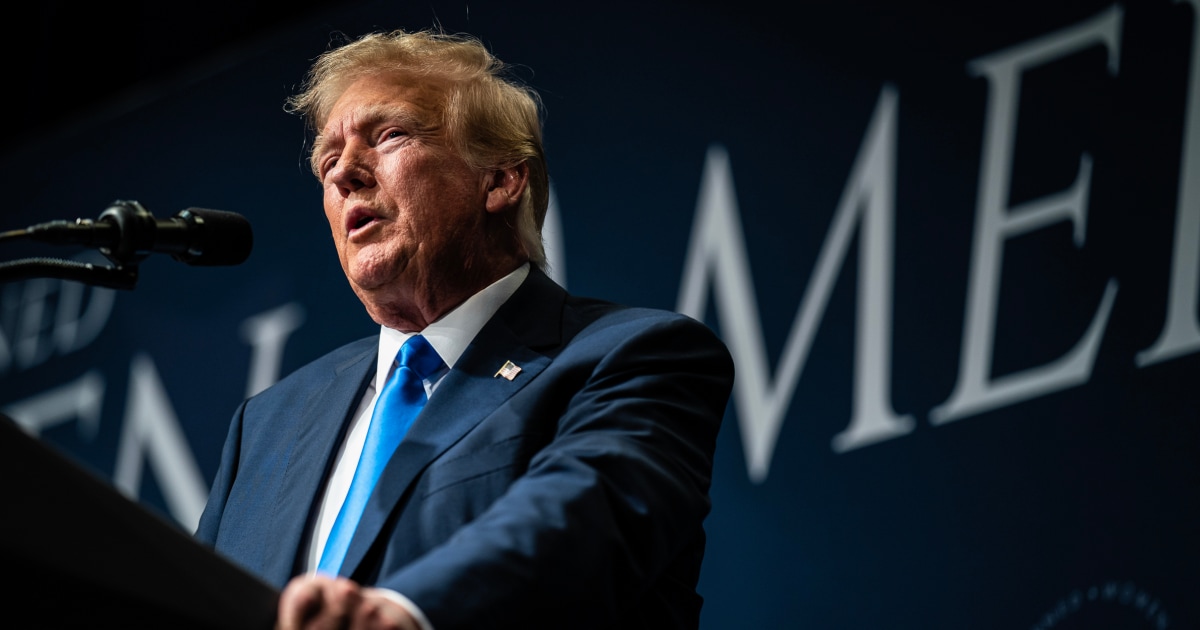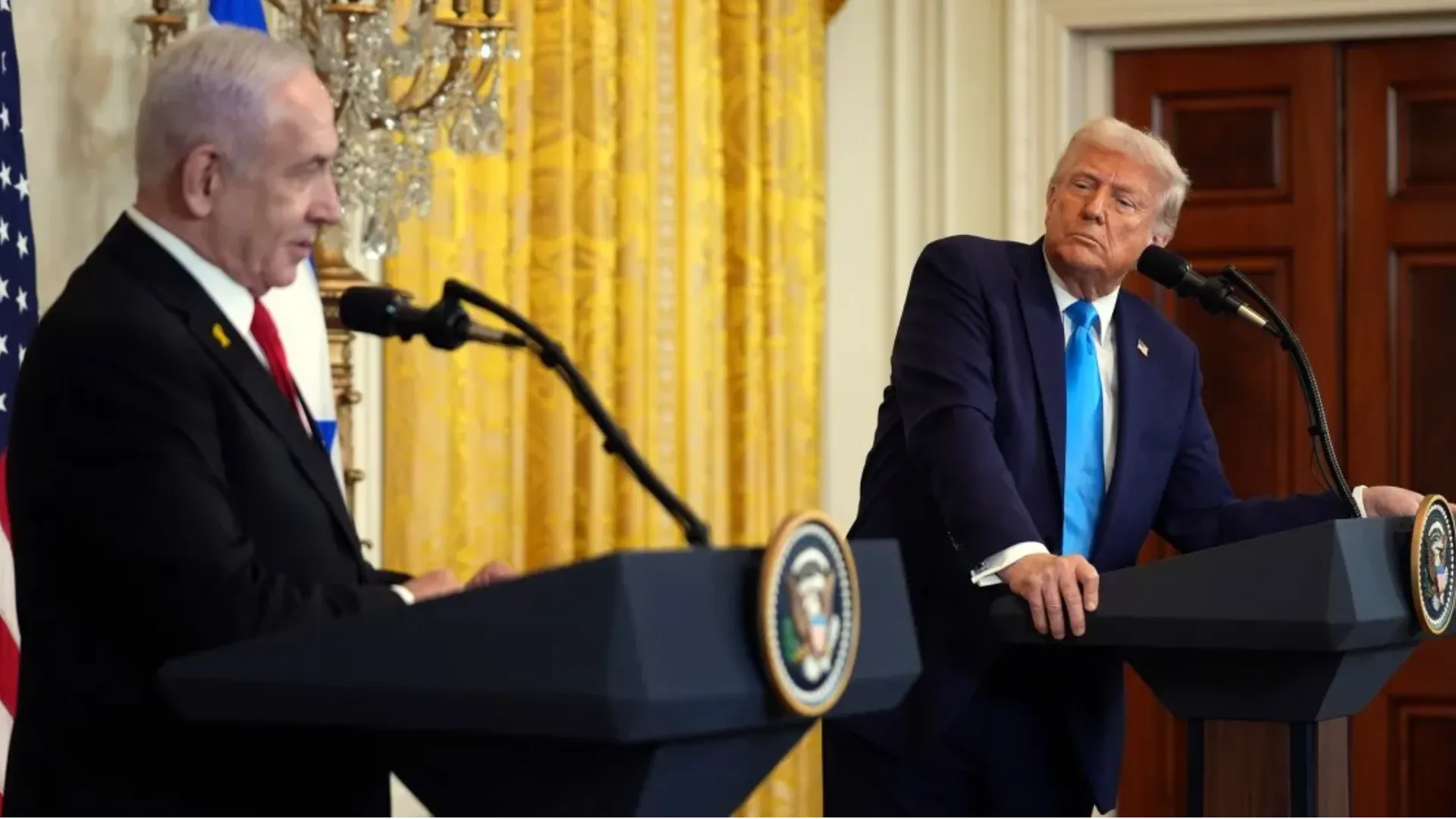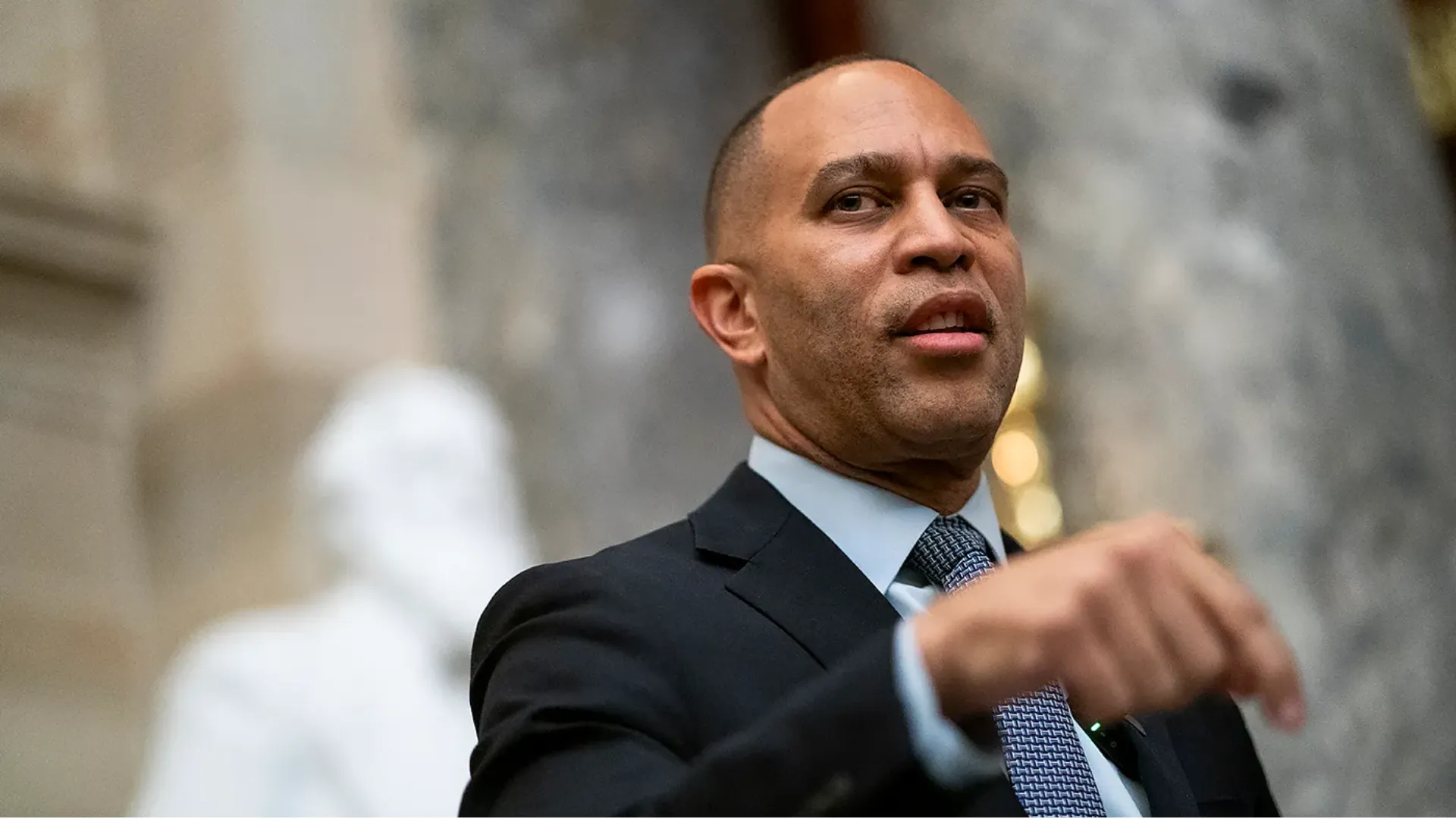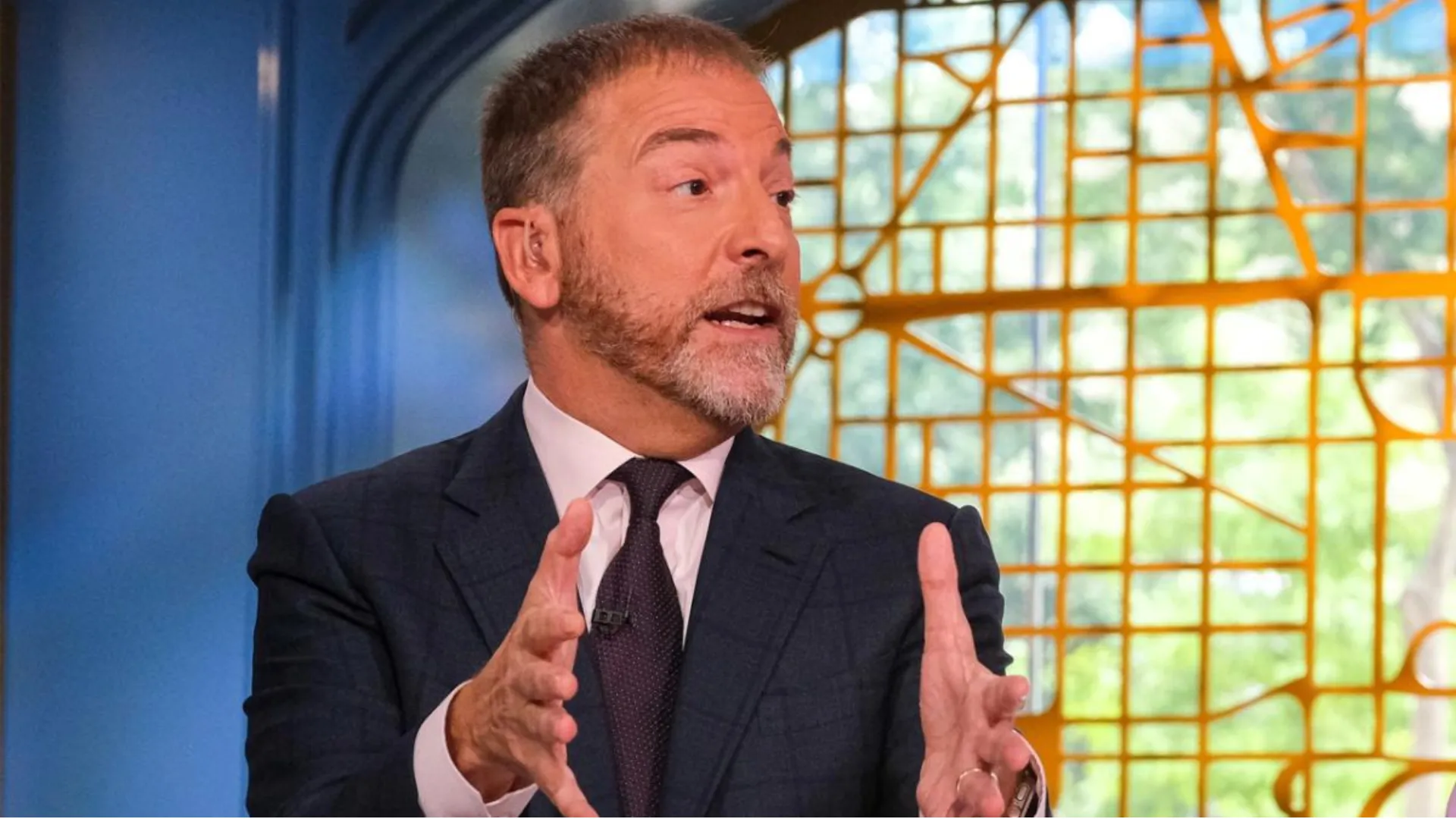
In a post that read more like a trailer for a 1980s action flick than a presidential briefing, President Donald Trump took to Truth Social this weekend to let the world know that he’s once again “unleashed” America’s warfighters—this time to protect Somalia from the Houthis, and perhaps also from reality itself.
Channeling his inner Rambo, Trump claimed to have ripped apart the so-called “dangerous red tape” left behind by Joe Biden and declared a new era of muscular American military engagement in East Africa.
The enemy: the Houthis, a Yemen-based rebel group, now apparently on Trump’s personal watchlist after their alleged movement toward Somalia. The solution? Let the “greatest Warfighters the world has ever seen” handle it, of course.
“Time for the terrorists to hide, but it won’t do them any good,” Trump posted, capitalizing every other word in his usual style and ending with the kind of cinematic flair typically reserved for comic book movie trailers. “Our Warfighters… will find them and bring them to a swift Justice.”
There’s no word yet on whether this new campaign will be officially titled “Operation Trump Thunder: The Somalia Directive,” but given the tone, don’t be surprised if the Pentagon’s next press release includes theme music.
Trump has repeatedly claimed that President Biden tied the military’s hands with “dangerous red tape,” though specifics remain fuzzy—much like Trump’s memory of constitutional limitations or how the military chain of command works.
In this latest declaration, Trump insists he’s liberated the troops, “just like I did against ISIS,” a conflict that he says was resolved in just “three weeks” under the command of General Daniel Caine, whom he recently named Chairman of the Joint Chiefs of Staff.
Just to be clear, ISIS still exists in various forms and regions, including parts of Syria, Iraq, and Africa. But in the alternate reality that is Trump’s Truth Social feed, the terrorist group was obliterated in less time than it takes to get a passport renewed.
Trump also said the U.S. would “support the Somali People” and told them not to let the Houthis “embed,” which raises the question: Did anyone in Somalia ask for this? Well, yes—sort of.
According to reporting from the Associated Press, Somali President Hassan Sheikh Mohamud recently sent Trump a draft letter offering the U.S. exclusive operational control over four key Somali bases and ports, including Berbera and Baledogle.
The letter, leaked to social media, was reportedly aimed at enticing the U.S. to deepen its military involvement in the Horn of Africa and, notably, to keep “external competitors” (read: China, Russia, maybe Elon Musk) out of the region.
But it also had the unintended effect of igniting tensions between Somalia’s central government and the breakaway region of Somaliland, which considers Berbera its own.
In the kind of foreign policy nuance Trump is famously allergic to, Berbera is in Somaliland—a region that declared independence in 1991 but hasn’t been internationally recognized.
So while Trump might believe he’s boldly defending “the Somali People,” it’s unclear which people he’s actually talking about. But then again, why let geopolitics get in the way of a great photo op?
Trump’s pronouncements are not known for their subtlety, but even by his standards, this latest round of international saber-rattling was a masterpiece of bravado and chest-thumping.
Declaring himself the vanquisher of ISIS (again), the destroyer of bureaucratic tape, and the protector of Somalia, Trump’s post read like a personal audition tape for a role in the next Expendables movie.
Gone were the quiet deliberations of joint military briefings or consultations with allies. In their place: a social media post that would have made a great opening voiceover for a video game.
But while Trump’s messaging is custom-designed for virality, the policy implications are a little more serious—and potentially chaotic. The notion of “empowering” troops by removing legal constraints sounds great to Trump’s base, but legal experts point out that there are international laws, treaties, and rules of engagement that don’t disappear just because a president calls them “red tape.”
“If the president is bypassing established military protocols or attempting to override command structures via social media, that’s not efficiency—that’s dangerous,” said retired Army Col. William Thompson. “This isn’t a video game. These are real lives, real operations, and real consequences.”
As with all things in Trump’s America, the true villain of this story is—who else?—Joe Biden. Trump insists that Biden’s military policies were so riddled with “red tape” that American troops were essentially reduced to desk jobs, unable to defend themselves or take the fight to the enemy.
To correct this perceived injustice, Trump has once again framed himself as the one man willing to stand up and do what needs to be done. The only problem is, there’s no independent confirmation that Biden-era restrictions actually impeded military operations in Somalia or elsewhere.
Under Biden, U.S. forces continued conducting airstrikes against al-Shabab, and advisors were deployed to assist local forces. The strategy wasn’t flashy, but it was ongoing.
Still, Trump’s narrative persists. In his world, he alone rides in to rescue American troops from the clutches of overregulation, armed with nothing but a smartphone and a boundless capacity for self-congratulation.
In another twist, Trump’s focus on the Houthis is raising eyebrows among military analysts who note that the group is based in Yemen—not Somalia. While there are concerns about regional influence and Iranian-backed expansion, there is currently no widespread evidence that the Houthis are “embedding” in Somalia in significant numbers.
“There is no major operational Houthi presence in Somalia right now,” said Dr. Lena Sadik, a Middle East analyst at the Atlantic Council. “This seems to be a conflation of several different regional issues, none of which are clarified by Trump’s rhetoric.”
That hasn’t stopped Trump from doubling down on his narrative, even if it muddles the distinction between al-Shabab (a long-time Somali terror threat), ISIS-affiliated cells in Africa, and Yemen-based Houthis.
In Trump’s worldview, the “bad guys” all blur together, and he’s the lone action hero on a mission to defeat them all—preferably in under 90 minutes.
No Trump post would be complete without a reference to a loyal general, and this time it’s General Daniel Caine, Trump’s handpicked Chairman of the Joint Chiefs of Staff.
According to Trump, Caine obliterated ISIS in “three weeks,” which is remarkable considering ISIS has existed for over a decade and continues to stage attacks in multiple countries.
Caine, a real Air Force officer with a long career, has yet to comment publicly on the president’s glowing praise or his fantastical timeline. Military sources note that while Caine has experience coordinating counter-ISIS operations, Trump’s claims wildly exaggerate the speed and scope of those efforts.
But facts, as always, take a backseat in the MAGA cinematic universe.
Ultimately, Trump’s messaging may be less about Somalia and more about South Carolina, Pennsylvania, and the rest of the states he needs to win in 2026 and 2028. His post serves as red meat for his base, emphasizing themes of strength, nationalism, and an American military unshackled from Democratic “weakness.”
Whether or not any new military engagement in Somalia takes place, Trump has successfully inserted himself into yet another global flashpoint—and turned it into a personal brand exercise.
“He’s turning U.S. foreign policy into pro-wrestling,” said political analyst Marla Chen. “It’s about feuds, chest-pounding, and big declarations with very little substance. But it works for his audience.”
If Trump is to be believed, he has single-handedly rescued the U.S. military from bureaucratic oppression, smote ISIS in under a month, and now plans to deliver Somalia from the Houthis—despite geography, international law, and military reality.
With his declaration that “the terrorists will hide but it won’t do them any good,” Trump continues to play the role he’s always loved most: not president, not businessman, but action hero. And in this latest episode, the villain is Biden’s “red tape,” the battlefield is Somalia, and the stakes are—as always—his own legacy.
“Donald Jesus Trump,” as Saturday Night Live so aptly mocked this week, may not walk on water, but according to him, he can certainly walk into Somalia and solve a decades-long conflict by tweeting about it.
If only foreign policy were that simple.






